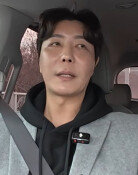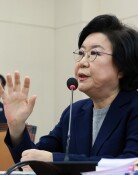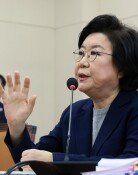Va. Tech Prof. Speaks About Mass Killer Cho
Va. Tech Prof. Speaks About Mass Killer Cho
Posted April. 17, 2009 09:06,
Thousands of students at Virginia Tech yesterday lit candles to honor the 32 victims of the 2007 massacre perpetrated by Korean American Cho Seung-hui.
Norris Hall, where the massacre occurred, was reopened after renovation the same day.
While everyone on campus was determined to overcome wounds from the incident, many urged self-reflection and preventive measures to prevent a recurrence.
Lucinda Roy, former chair of Virginia Techs English department who taught Cho, told The Dong-A Ilbo in an exclusive interview that she regrets failing to prevent the tragedy by missing warnings signs from Cho.
A famous poet and writer, Roy published No Right to Remain Silent: The Tragedy at Virginia Tech early this month.
The following is excerpts of the interview.
Dong-A: What do you remember about Cho?
Roy: Cho took my class in spring 2004. Because it was a large lecture with 200 students, I had no personal meeting with him. Cho sent me e-mail on credits and publications. In October 2005, a female professor told me she was concerned about a (gruesome) poem hed written for her class. I asked Cho by e-mail if he would come and see me. And his response was unusual. He said he assumed I`d be yelling at him. He must`ve assumed he`d be punished for his poem. I wrote back saying I don`t yell at students. He came to talk with me Oct. 19, 2007, wearing dark sunglasses and jamming his hat on. When I asked him questions, he waited 10-20 seconds and responded briefly in a low voice.
Dong-A: Did you recommend several times that he get a psychiatric consultation?
Roy: I did. I told him not to be afraid of seeking counseling (for mental illness).
According to a police investigation, Cho saw a psychiatrist for his stoking of female students and was recommended treatment. His mental problem was left untreated, however. Roy said in her book, Once I sat with him face to face. He looked at me with hatred in his eyes, so I thought he wanted to kill me. I wanted to get away from him, but I couldnt. When I asked whether he was angry with me, he shook his head.
Dong-A: Do you think Cho`s life as an immigrant had an impact on him?
Roy: I also immigrated to the United States from Britain in 1985. One day, when I talked about how difficult it could be to adjust to American culture and homesickness, he agreed with me and said he was lonely. It was a long-awaited response from him.
Dong-A: Though his crime was blamed on his mental illness, some in Korea attributed his shooting spree to maladjustment and structural alienation of immigrants.
Roy: I understand that Cho was suffering from severe depression and selective mutism. He is said to have developed symptoms when he was three. This means he lived in relative silence for almost 20 years. Its hard to deal with a mentally unstable person who considers other peoples words and acts as insults. Worse, if he or she feels alienated, he or she is severely hurt even by a trivial matter. But I dont think that the fact he was an immigrant was directly related to his shooting spree. Historical records show that most school shootings were committed by white Americans. They also said they were victims.
Dong-A: Have you met Chos parents?
Roy: No. I heard they would drive nine hours to see Cho every weekend and called him every week in his first semester. They`d done their best to have their son get treated since he was in middle school. In the United States, however, its up to children to decide whether to get treatment when they turn 18.
Dong-A: Because Cho was of Korean decent, Koreans were worried about a backlash against Korean Americans right after the incident.
Roy: Cho was Korean by accident. Everybody is well aware that nationality or ethic background has nothing to do with individual violence.
Dong-A: How could you overcome your psychological wounds?
Roy: Peoples encouragement and their willingness to share my sadness were a great help to me. In particular, Koreans sharing of our sorrows helped me a lot. They showed great sympathy for us.
Dong-A: You blasted Virginia Tech authorities for showing an improper response in your book.
Roy: I did because I worried that failure to learn a lesson from the incident will invite another tragedy. We should check whether troubled students need any help and if there is a problem, we should intervene effectively and promptly. Those with serious mental illness dont judge their behavior from a moral perspective. So early help is necessary.
On if the school is upset over her book, she said smiling, I am in a very challenging situation. But fellow professors and students have thrown their support behind me.
sechepa@donga.com




![하버드 의사가 실천하는 ‘뇌 노화 늦추는 6가지 습관’ [노화설계]](https://dimg.donga.com/c/138/175/90/1/wps/NEWS/IMAGE/2026/01/22/133210626.3.jpg)


